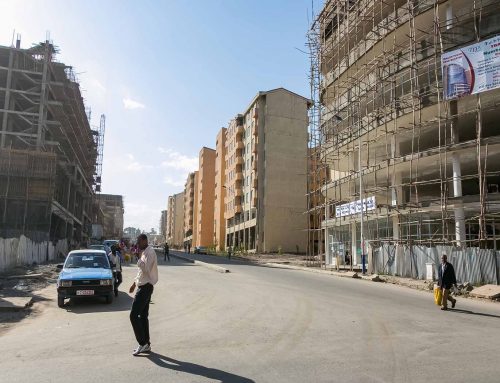A Cooperative Capital lets people pool small amounts of money, vote on how they want to invest it to improve their neighborhood–and then generates returns.
Buying an abandoned house in Detroit, remodeling it, and then renting or reselling it can be a good investment, but it’s something that many people living in Detroit might not have the cash on hand to do. A new community-based fund that will launch later this year will change that: When neighbors invest a small amount in the fund, the fund can invest in housing, and as the community develops, community members will get a financial return.
While the city has demolished thousands of blighted properties, others can be repaired. The investment needed may be relatively small–perhaps $30,000 to $70,000–but still out of reach of many people living in the community.
The first fund will allow anyone in Michigan to invest a minimum of $1,000, which gives them a vote on monthly investments in Detroit. (Each additional $1,000 gives another vote, up to a maximum of 10 votes.) An investment committee will review and rate all opportunities, and the larger group of investors will vote on the top five. The winning choice will go into a due diligence stage, in which Cooperative Capital will determine if the investment can produce at least a 6% annual rate of return.
Although the Detroit fund will focus initially on real estate, the same model can be used to invest in local businesses. In Midland, Michigan, another community that plans to work with the startup, investments will likely include a mix of real estate and businesses. A new coffee shop or restaurant that might struggle to get capital from a bank could potentially get an investment from the fund–which would then share revenue with investors as the business grows.
“That’s where we could really use the power of that large base of people investing and then having an incentive to actually frequent those places to reap a benefit and return on investment,” says Osei. As people individually benefit, so will the community; local businesses create jobs and recirculate money within a city, and rehabbed homes help increase property values for neighbors.
For some community members in Detroit, it will be the first investment they’ve made. The startup sees the fund as a way to increase financial literacy, and also plans to offer an online class called Get Financially Lit that will teach the basics of investment and finance. “We need to do a pretty comprehensive job of that before we start investing in those other asset classes–small and medium-size businesses,” he says.
The first fund, which will likely launch this spring or summer, involved a challenging process of working with state regulators. But with that regulatory hurdle cleared, it should be easier to launch similar funds in other Michigan cities like Midland, Flint, Lansing, and others. The startup also is in talks with community groups in Oakland, Chicago, Baltimore, and several other cities nationally. Cooperative Capital, like a venture fund, will charge a small management fee, along with another fee if it reaches a certain performance threshold.
In each city, investments may be different. “We’re finding in most of these communities that have this interest is there’s a feeling amongst the residents that there’s a lack of equity and lack of inclusion, but the problems in these communities are somewhat unique to the communities,” says Osei.
The fund will allow a group to use the aggregated capital in the way they think is best–and will help focus that larger group on solutions. “We think the much bigger picture is the dots that will be connected by having this large group of people coming together and having this alignment around collectively investing in their community,” he says.


